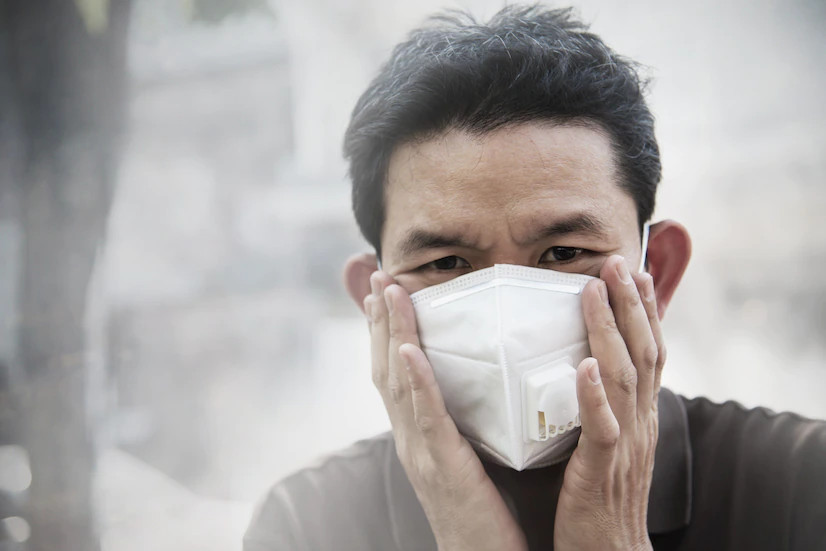Every day, air pollution is an unavoidable environmental issue. Air pollution may result from the utilization of air conditioners, the combustion of fuel, and the discharge of industrial waste. Contaminated air containing harmful particles can have negative effects on human health, particularly on the respiratory system.
Types of Air Pollutants
The adverse effects of air pollution on the lungs depend on the type of air pollutant concentration. Some of the most common types of air pollutants include:
- PM (particulate matter)
Small particles that can irritate and cause damage to the respiratory tract. The smaller the particle size, the deeper it gets into the airways and causes lung damage. Generally, PM2.5, which is particulate matter less than 2.5 nanomicrons in size, is often associated with significant damage to the lungs. - Nitrogen dioxide
A gas that can irritate the airways and cause asthma or COPD (chronic obstructive pulmonary disease) to flare up. - Ozone
A gas that can reduce lung capacity and irritate the respiratory tract. - Sulfur dioxide
Gas that can irritate the lining of the respiratory tract, especially in people with asthma
After inhalation, a lot of the microscopic particles become stuck in the air sacs; from there, they may find their way into the bloodstream and eventually other organs. Lung and other organ damage can result from daily exposure to pollution particles in the air.
The Impact of Air Pollution on Lung Health
Exposure to high concentrations of air pollutants can cause acute and chronic health problems. Respiratory tract irritation, difficulty breathing, and sneezing are some of the symptoms that may develop after breathing in contaminated air. Air pollution could exacerbate asthma symptoms for certain people.
In the lungs, air pollution can cause the following health problems:
Respiratory Infections
Symptoms of a respiratory tract infection may include coughing, sneezing, a sore throat, headaches, and muscle pain. Respiratory tract infections may last for 1-2 weeks; if within that time period it does not get better, then you should see a doctor.
Bronchitis
Exposure to air pollution and cigarette smoke can lead to bronchitis, an inflammation of the bronchial tubes that carry air in and out of the lungs. Some bronchitis types are either acute, lasting 10–14 days, or chronic, with a 3-month cough that recurs over a 2-year period.
Chronic obstructive pulmonary disease (COPD)
Chronic obstructive pulmonary disease or COPD, is a chronic health problem that occurs due to prolonged inflammation of the lungs. The disease makes it difficult to breathe. COPD includes a group of health problems that affect the lungs, including chronic asthma and emphysema.
COPD is a progressive disease that can worsen over time. People with COPD should control their symptoms in order to maintain a good quality of life.
Lung cancer
Lung cancer is a cancer that develops in the lungs. This type of cancer is one of the most common cancers in both men and women. Smoking habits and exposure to pollution and chemicals in the work area can be triggering factors for lung cancer.
Air quality has a huge impact on lung health. If you have breathing problems due to exposure to air pollution, you should immediately see a doctor. You can also use the consultation feature available in the Ai Care application.
Looking for more tips and information about other health conditions? Click here!
- dr. Monica Salim
Respiratory Health Association. Understanding Air Pollution. Available from: https://resphealth.org/clean-air/understanding-air-pollution/
Asthma and Lung. Air pollution and your lungs. Available from: https://www.asthmaandlung.org.uk/living-with/air-pollution/your-lungs
News Medical Life Sciences. Air Pollution and Lung Health. Available from: https://www.news-medical.net/health/Air-Pollution-and-Lung-Health.aspx
American Lung Association. Health Impact of Air Pollution. Available from: https://www.lung.org/research/sota/health-risks
Mayo Clinic. Available from: https://www.mayoclinic.org/diseases-conditions/copd/symptoms-causes/syc-20353679











